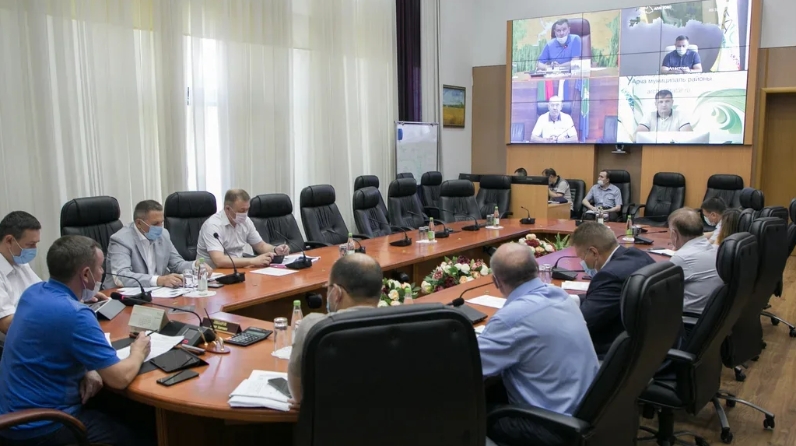The head of the Ministry of Agriculture of the Republic of Tatarstan held a working meeting with the districts to improve the efficiency of the agro-industrial sector

Today Deputy Prime Minister of the Republic of Tatarstan - Minister of Agriculture and Food of Tatarstan Marat Zyabbarov held a working meeting with the heads of regions of the republic and heads of agricultural departments in the videoconferencing regime.
The main topic of discussion was increasing the efficiency of the agro-industrial sector in all areas, including crop production, animal husbandry, technical modernization and small businesses.
Marat Zyabbarov said that seminars of the Ministry of Agriculture of the Republic of Tatarstan on increasing the productivity of arable land were held in the regions, where more than 500 people were trained. During the seminars, the priorities for 2021 were announced. Growth points will be: restoration of soil biota (soil deoxidation and colonization with beneficial microorganisms), optimization of technological operations (5 in 1), crop management (equipping with self-propelled sprayers) and increasing the efficiency of protective measures (introduction of mortar units).
These issues were discussed by the Deputy Minister of Agriculture and Food of the Republic of Tatarstan Ildus Gabdrakhmanov, who paid special attention to subsidizing the soil deoxidization program, the efficiency of sowing green manure crops on an area of at least 10% of arable land, increasing the fodder wedge at the rate of 1.4 hectares of productive fodder per 1 conditional head, the need for reseeding old-growth (more than 5 years) perennial grasses, putting unused lands into circulation and agricultural insurance.
The Deputy Minister of Agriculture and Food of the Republic of Tatarstan Talgat Tagirzyanov reported on the readiness of the harvesting equipment, noting that the fleet of grain harvesting equipment is 3,400 harvesters, including about 2 thousand high-performance ones. For separate cleaning there are about 1200 equipment units, including 516 self-propelled mowers; for transportation of crops - more than 4 thousand trucks and about 2 thousand tractor trailers.
“During harvesting, the priority will always be to reduce losses during harvesting and transporting grain. In any case, it is necessary to carry out the highest quality cleaning. This year, harvesting differs from last year's due to the presence of a large mass and lodging, which significantly reduces the productivity of the combines”, said Talgat Tagirzyanov and proposed a number of solutions that will help to organize the harvesting more efficiently, paying particular attention to the need for strict adherence to safety regulations.
Deputy Minister of Agriculture and Food of the Republic of Tatarstan Lenar Garipov dwelt on the most important issues of animal husbandry. To date, 2 million 928 thousand tons of haylage and 575 thousand tons of hay have been procured in the republic. For 1 conventional head there is 21.3 centners(71% of the need). In the context of districts, the largest amount of feed is harvested in Muslyumovsky, Yelabugsky Tyulyachinsky, Kamsko-Ustinsky, Baltasinsky and Sabinsky districts (from 24.7 to 66.2 c.u. units).
Lenar Garipov focused on the effectiveness of the implementation of digital solutions in the livestock industry and gave examples where digitalization has increased the productivity and profitability of agricultural enterprises.
The Deputy Minister of Agriculture and Food of the Republic of Tatarstan Rishat Khabipov paid attention to the development of small forms of farming and farms of grantees. Today, more than 400 thousand heads of cattle are kept in small farms. Subsidies of the Ministry of Agriculture of the Republic of Tatarstan to personal subsidiary farms are allocated on the basis of data from electronic household books. Rishat Khabipov drew attention to the importance of timely entering the necessary data into the books at the municipal level.
The analysis of capital repairs of cowsheds, haylage trenches, grain-flow farms and vegetable and potato storage facilities by districts was presented by the Deputy Minister of Agriculture and Food of the Republic of Tatarstan Marsel Makhmutov, drawing the attention of a number of districts to the need to accelerate construction and installation work.